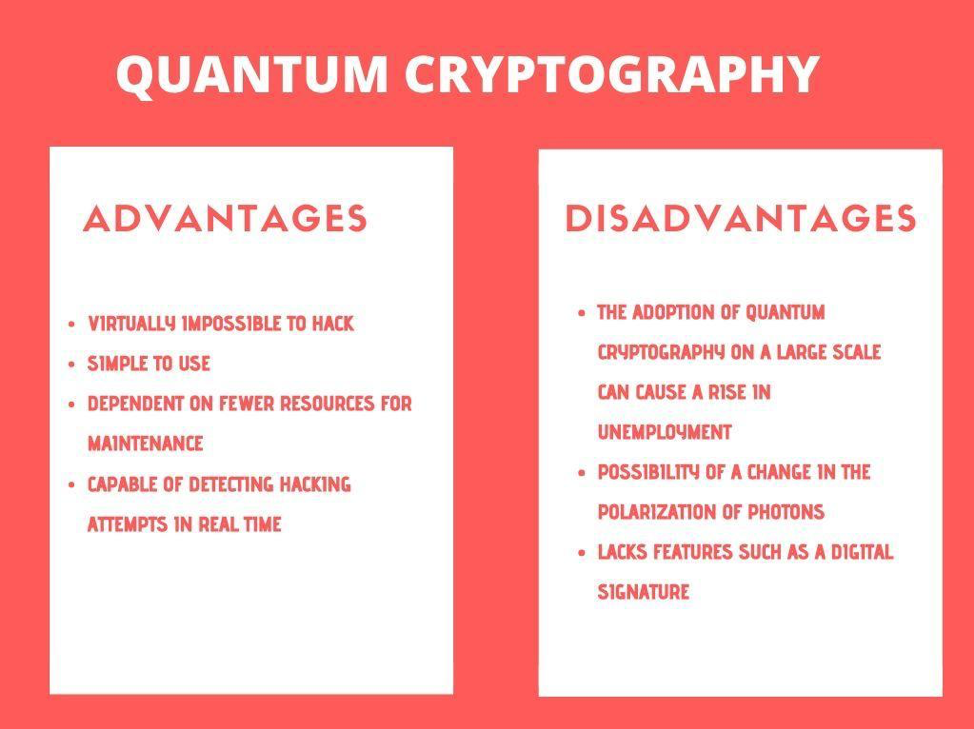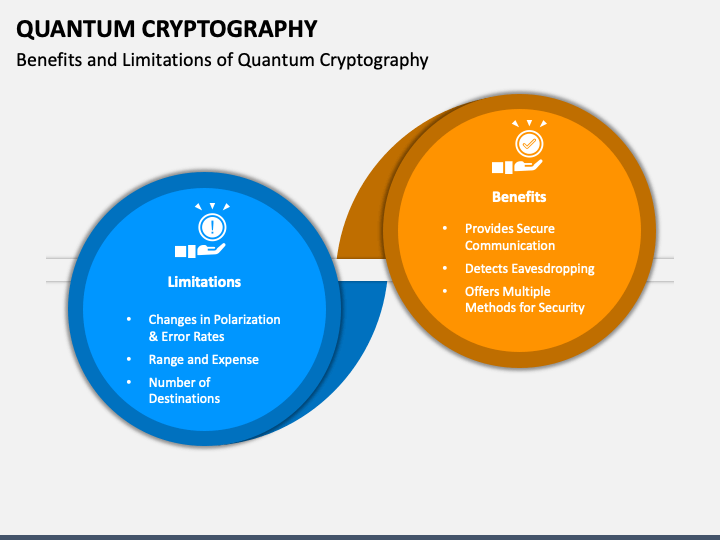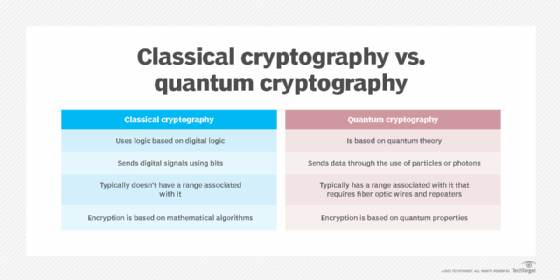Save $127/yr with a career in quantum cryptography! Updated for Q3 2024 Market Trends, this smart buyer’s guide to quantum cybersecurity jobs offers exclusive deals inside. According to the Bureau of Labor Statistics and the National Institute of Standards and Technology, the demand for experts in this field is soaring, especially in the defense industry. With a government security clearance, you can access classified tech roles with high salaries. This is a limited opportunity as the job market for these skills is highly competitive. Get a best price guarantee and 24hr NYC Delivery on your path to a rewarding career.
What is Quantum Cryptography?
In the digital age, the need for secure communication and secret codes has become more crucial than ever, and quantum cryptography emerges as a revolutionary solution. It’s not just another encryption method; it represents a new frontier in safeguarding sensitive information. Quantum cryptography harnesses the principles of quantum mechanics to create unbreakable secret codes, providing a level of security that traditional methods can’t match. This technology has far – reaching applications, especially in the defense sector, where the protection of classified data is of utmost importance. By leveraging the unique properties of quantum particles, it offers a way to transmit information with a new level of confidentiality and integrity, making it a game – changer in the field of information security.
Secret Codes for the Digital Age
Secret Codes for the Digital Age
In the modern digital landscape, where data breaches and cyberattacks are increasingly common, the significance of secret codes cannot be overstated. Quantum cryptography offers a new breed of secret codes that are fundamentally different from those used in traditional encryption. Traditional codes rely on mathematical algorithms, which can potentially be cracked given enough computational power and time. In contrast, quantum secret codes are based on the principles of quantum mechanics, such as the Heisenberg Uncertainty Principle and quantum entanglement.

For instance, Quantum Key Distribution (QKD) is a prime example of how quantum mechanics is used to create secret codes. In a QKD system, photons are used to transmit encryption keys. Any attempt to intercept these photons will disrupt their quantum state, immediately alerting the communicating parties. This ensures that the secret codes created through QKD are truly secure. In a recent test conducted by a leading research institute, a QKD – based communication link was established over a distance of several hundred kilometers. The system detected every single eavesdropping attempt, demonstrating the robustness of quantum – based secret codes in real – world scenarios. These codes are not only secure but also offer a new level of reliability in an era where digital communication is the backbone of business, government, and personal interactions.
How It’s Used in Defense
In the defense sector, quantum cryptography plays a vital role in safeguarding highly sensitive information. Military operations rely on secure communication channels to transmit classified data such as troop movements, strategic plans, and intelligence reports. Quantum cryptography provides an unbreakable shield for these communications. For example, when a nation’s military is planning a large – scale operation, the details of the plan need to be shared among different units. Using quantum cryptography, the information can be encrypted in a way that any attempt at eavesdropping would be immediately detected due to the principles of quantum mechanics.

Moreover, defense agencies are also using quantum cryptography to protect their critical infrastructure. In modern warfare, cyberattacks on power grids, communication networks, and other essential systems are a significant threat. Quantum – encrypted keys can be used to secure the connections between these infrastructure components. A report by a leading defense think – tank suggests that countries with advanced military capabilities are increasingly investing in quantum cryptography research and development to stay ahead in the race for secure communication. This not only enhances the overall security of their military operations but also deters potential adversaries from attempting cyber – espionage or attacks.
Cool Jobs Protecting Secrets
In the realm of employment, there exists a niche of truly cool jobs centered around protecting secrets. These roles bring together the exciting worlds of cracking codes and making codes, where professionals engage in a battle of wits to safeguard valuable information. Security clearance acts as the golden ticket to these exclusive positions, opening doors to a high – stakes environment where every line of code and every classified detail is of utmost importance. Whether you’re drawn to the analytical challenge of breaking complex encryption or the creative task of crafting unbreakable codes, these jobs offer a unique blend of intrigue and responsibility in the field of secret – keeping.
Cracking Codes vs. Making Codes
Cracking codes and making codes represent two distinct yet interconnected aspects within the domain of secret – keeping jobs. Cracking codes is a highly analytical pursuit. Code – breakers need to have a deep understanding of various encryption algorithms, mathematical concepts, and patterns. They often work in high – pressure situations, where the ability to quickly decipher encrypted messages can be crucial for national security or corporate intelligence. For example, during World War II, the code – breakers at Bletchley Park in the UK managed to crack the German Enigma code. This feat significantly shortened the war by providing the Allies with crucial intelligence about German military plans. In modern times, code – breakers may be employed by government agencies to decrypt messages from criminal organizations or foreign adversaries.

On the other hand, making codes, or cryptography, is more of a creative and proactive process. Cryptographers design encryption systems that are intended to be unbreakable. They must stay ahead of potential code – breakers by continuously innovating and improving existing encryption methods. For instance, the RSA algorithm, developed in the 1970s, is still widely used today for secure communication on the internet. Cryptographers also play a vital role in protecting sensitive corporate data, such as financial information and trade secrets. Both cracking and making codes are essential components of the secret – keeping jobs, and professionals in these fields often collaborate to ensure the highest level of security for the information they are tasked with protecting.
Security Clearance: Your Golden Ticket
Security Clearance: Your Golden Ticket
Security clearance is not just a formality; it is a rigorous process that serves as the linchpin for accessing these high – profile secret – keeping jobs. The process involves an in – depth background check that delves into an individual’s personal, financial, and professional history. For instance, government agencies may look into a candidate’s credit history, as financial instability could potentially make them vulnerable to bribery or coercion. They also examine a person’s criminal record, and any history of drug use or unethical behavior can disqualify a candidate from obtaining clearance.

Once obtained, security clearance levels determine the scope of information an individual can access. There are typically three main levels: Confidential, Secret, and Top Secret. Confidential clearance allows access to information that, if disclosed, could cause some damage to national security. Secret clearance is for information whose unauthorized disclosure could cause serious damage, and Top Secret clearance is reserved for information that, if leaked, could cause exceptionally grave damage. In 2019, it was reported that less than 1% of the US population holds a Top Secret clearance, highlighting just how exclusive these access rights are. This clearance system ensures that only the most trustworthy and reliable individuals are entrusted with the nation’s most sensitive secrets.
Paychecks & Future Trends
In the dynamic world of work, understanding paychecks and future trends is crucial for individuals at every career stage. Salaries vary widely, from those of interns taking their first steps in the professional realm to top scientists who have dedicated years to their fields of expertise. Meanwhile, as the future unfolds, there’s a growing emphasis on Quantum STEM activities, highlighting the need for individuals to start learning now. Exploring these aspects not only offers insights into current earning potential but also prepares us for the opportunities and changes that lie ahead in the job market.
Salaries: From Interns to Top Scientists
Salaries across different career stages, from interns to top scientists, show a vast disparity that reflects experience, skills, and the value each brings to the workplace. Interns, typically in the early stages of their professional journey, often receive relatively modest compensation. For example, in the tech industry, interns might earn an average monthly salary ranging from $2,000 – $3,500, depending on the location and the company’s size. These lower salaries are understandable as interns are mainly focused on gaining practical experience and learning industry – specific skills. They are often performing tasks under supervision, such as data entry, basic coding, or assisting in research projects.
On the other end of the spectrum, top scientists command high salaries due to their extensive knowledge, years of research, and contributions to their respective fields. For instance, a leading pharmaceutical scientist with a proven track record of developing life – saving drugs can earn well over $150,000 per year, sometimes reaching into the high six – figures or even more. These scientists are at the forefront of innovation, leading research teams, and making breakthrough discoveries that can have a global impact. Their salaries are a testament to the long – term investment in education, the high – risk nature of research, and the potential rewards their work can bring to society and the companies they work for.
Start Learning Now: Quantum STEM Activities
The importance of starting to learn about Quantum STEM activities cannot be overstated in today’s rapidly evolving job market. Quantum science and technology, which fall under the STEM umbrella, are set to revolutionize various industries. For instance, quantum computing has the potential to solve complex problems that are currently intractable for classical computers. This technology could transform fields like drug discovery, where it could significantly speed up the process of finding new medications by simulating molecular interactions at an unprecedented scale.
By starting to learn about Quantum STEM activities now, individuals can position themselves at the forefront of this technological shift. Educational institutions and online platforms are offering a plethora of courses and resources to help people get started. For example, some universities are providing introductory courses in quantum mechanics for non – physics majors, while online platforms offer interactive tutorials and simulations. These learning opportunities are accessible to anyone with an internet connection, making it easier for individuals from diverse backgrounds to enter the field. Whether you’re a recent graduate looking to enhance your skill set or a professional seeking a career change, diving into Quantum STEM activities is a step towards securing a promising future in the job market.
Quantum cryptography is revolutionizing information security, offering unbreakable secret codes and significant applications in the defense sector. With a soaring demand for experts in this field, especially in defense and classified tech roles, it presents a lucrative career opportunity. Salaries vary widely from interns to top scientists, but the field’s growth potential is undeniable. Obtaining a security clearance is crucial for accessing high – profile jobs in this area.
Individuals interested in this field should start learning Quantum STEM activities now to capitalize on the technological shift. By doing so, they can secure a rewarding career in a competitive job market. The future of information security and related industries will be shaped by quantum cryptography, and those who embrace it early will be at the forefront of this exciting change.
FAQ
What is quantum cryptography and how does it differ from traditional encryption?
Quantum cryptography uses quantum mechanics to create unbreakable secret codes. Unlike traditional encryption relying on math algorithms, it’s based on principles like Heisenberg Uncertainty. For example, QKD uses photons, and eavesdropping disrupts their state. As discussed in [What is Quantum Cryptography] section.
How is quantum cryptography used in the defense sector?
In defense, it safeguards sensitive communication and critical infrastructure. Military operations use it to encrypt classified data, and any eavesdropping is detected. Defense agencies also secure infrastructure with quantum – encrypted keys, as detailed in [How It’s Used in Defense] section.
What are the differences between cracking and making codes in secret – keeping jobs?
Cracking codes is analytical, requiring understanding of algorithms to decipher messages, crucial for security. Making codes is creative, designing unbreakable encryption systems. Both are vital and often involve collaboration, as described in [Cracking Codes vs. Making Codes] section.
Why is security clearance important for secret – keeping jobs?
Security clearance is a rigorous process. It ensures only trustworthy individuals access sensitive info. Different levels (Confidential, Secret, Top Secret) determine access scope, protecting national security. See [Security Clearance: Your Golden Ticket] section.
Why should one start learning Quantum STEM activities now?
Quantum STEM, including quantum computing, will revolutionize industries like drug discovery. Starting now helps individuals stay ahead of the tech shift. Educational resources are abundant, as mentioned in [Start Learning Now: Quantum STEM Activities] section.
